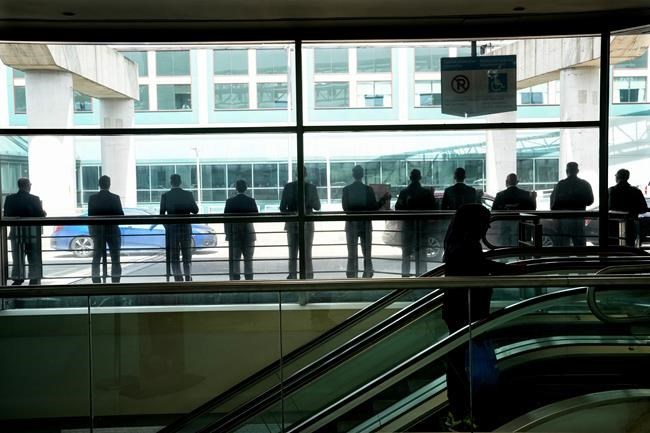MONTREAL — Pilots are demanding better wages and benefits from their employers, raising financial pressure on airlines that are just starting to recover from the pandemic.
The union representing some 320 aviators at WestJet Encore, the carrier's regional service, announced Tuesday they plan to launch negotiations on their second collective agreement.
The move by the Air Line Pilots Association comes after 1,800 pilots with WestJet's main operation and its budget subsidiary Swoop ratified a new deal in June that brings them onto a level pay scale, giving flight crews a 24 per cent wage bump over four years and resulting in Swoop's shutdown at the end of October.
Days later, some 4,500 Air Canada pilots kick-started the bargaining process, as unions seek gains that will bring them closer to deals in the U.S.
Between March and September, pilots at Delta Air Lines, United Airlines and American Airlines secured agreements that included four-year pay hikes ranging from 34 per cent to 40 per cent.
John Gradek, who teaches at McGill University's aviation management program, said losing a pilot is a big deal to an airline because replacing them is time consuming and expensive.
"The airlines will do whatever it takes in order for them to protect their pilot base. And that approach is going to cost a lot of money," Gradek said.
Increasingly, aviators have been seeking sunnier skies south of the border.
While the trickle has been creeping up since 2017, the number of Canadian pilots applying for certification to fly commercial aircraft in the U.S. nearly quadrupled to 147 last year from 39 in 2021, according to the Federal Aviation Administration.
"We're in a world where attrition is a key concern of the airlines," Gradek said of Canadian carriers.
"Where do you go and get pilots? You go to regional carriers, you go to the bush pilots to get them. But they're running out of pilots as well, so it gets to be really, really tricky."
Labour shortages continue to plague the aviation industry as the sector emerges from COVID-19 and the travel turmoil of the past year, with a dearth of workers in areas ranging from the flight deck to air traffic control and ground handling.
The dearth of workers also lends leverage to their bargaining efforts, particularly for pilots in short supply.
"That leverage has certainly been demonstrated through the negotiations that we've seen so far," said Duncan Dee, former chief operating officer for Air Canada.
"The U.S. wage settlements have been looming over the Canadian industry for quite some time. But really what has set the tone was the pilot negotiations that took place at WestJet earlier in the year, where they settled for quite important uplift in pay and changes in work rules."
This report by The Canadian Press was first published Sept. 6, 2023.
Companies in this story: (TSX:AC)
Christopher Reynolds, The Canadian Press




